Choosing the right high school graduation pathway in Florida can feel overwhelming. With options like the 24-credit program, ACCEL, Career and Technical Education (CTE) Pathway, International Baccalaureate (IB), and the Advanced International Certificate of Education (AICE) curriculum, students have many routes to success. Understanding these pathways helps families and students make informed decisions that align with their educational and career goals.
At Optima Academy Online, we guide students through these choices, ensuring they meet Florida’s public school requirements while also embracing our rich and immersive educational experiences. Each pathway has unique benefits and requirements, from earning college credits through advanced coursework to gaining practical skills in technical fields. Our goal is to provide a seamless and supportive environment where students can thrive academically and personally.
Our immersive, virtual reality-enhanced courses and field trips offer a dynamic and flexible alternative to traditional learning. We are dedicated to helping students excel by providing education that is both rigorous and engaging. Join us at Optima Academy Online, where we combine state-of-the-art technology with classical education, ensuring students are well-prepared for future challenges.
Graduation Requirements and Curriculum
In Florida, high school graduation requirements ensure that students are well-prepared for their futures, offering multiple pathways to cater to various academic interests and needs. Here, we explore the standard diploma requirements, variations in curriculum, and assessment factors in detail.

Standard High School Diploma Requirements
To graduate with a standard diploma in Florida, students must earn specific credits and meet certain criteria.
Required Credits:
- 24 credits in specific subject areas are needed.
- Credits include English, Mathematics, Science, Social Studies, Physical Education, Fine Arts, and electives.
Additional Requirements:
- Grade Point Average (GPA): A minimum GPA of 2.0 on a 4.0 scale.
- Some students may need to pass state-wide exams, such as FAST tests.
- Some students may need to pass the Florida End-of-Course (EOC) assessments in subjects like Algebra 1 and Biology.
Graduation Curriculum Variations
Different curriculum options allow students to personalize their education according to their goals.
Programs Available:
- Standard 24-Credit Program: This traditional path follows a structured course load.
- 18-Credit Academically Challenging Curriculum to Enhance Learning (ACCEL): An option for students seeking an accelerated path.
- Career and Technical Education (CTE) Pathway: Focuses on industry certification and prepares students for technical careers.
Additionally, students can earn special recognitions:
- Scholar Designation: Requires higher-level coursework and passing several higher-level EOC exams.
- Merit Designation: Acquired by earning industry certifications.
Assessment and GPA Considerations
Statewide Assessments:
- These exams aim to measure students’ proficiency in core subjects.
- The Grade 10 FAST ELA Reading score is particularly important for those who entered grade 9 in or after the 2021-22 school year.
- Home learners may or may not be required to take statewide assessments. Check with our advisors today to learn more.
GPA Requirements:
- Maintaining a minimum GPA of 2.0 is essential.
- This average must be achieved across the required subjects, ensuring that students are meeting academic standards in all areas.
Advisors help guide students through these requirements, ensuring they are on track for graduation. Our mission is to provide a supportive, immersive educational experience to help every learner succeed.
Accelerated and Alternative Education Paths
In Florida, students have a variety of paths to high school graduation, offering flexibility to meet diverse needs and goals. From fast-tracking their education with advanced courses to tailoring approaches for students with disabilities, there’s a pathway for everyone.
Advanced Academic Opportunities
Advanced academic opportunities allow students to pursue challenging coursework that can accelerate their education. Programs include the Academically Challenging Curriculum to Enhance Learning (ACCEL) option. These programs not only engage students with rigorous content but also enable them to earn college credits while still in high school, providing a head start on higher education.
At Optima Academy Online, we offer immersive learning experiences aligned with these advanced programs to ensure students are well-prepared. Our virtual reality classrooms and field trips bring these challenging curricula to life, creating an engaging and effective learning environment.
Dual Enrollment and Dual Credit:
- Dual Enrollment: We partner with Florida Southwestern State College, allowing students to graduate high school with both their diploma and an associate degree.
- Dual Credit: We collaborate with Mississippi State University and Southeastern University, enabling students to gain a-la-carte college credits while in high school.
Career and Technical Education (CTE) Pathway
The Career and Technical Education (CTE) pathway offers an alternative for students who are more interested in acquiring practical skills for the workforce. CTE programs include various fields such as healthcare, information technology, and engineering. Students can graduate with industry certifications, increasing their employability immediately after high school.
At Optima Academy Online, we incorporate real-world applications into our CTE courses, using virtual reality to provide hands-on experience in a safe and controlled environment. This approach helps bridge the gap between theoretical knowledge and practical skill, ensuring students are job-ready upon graduation.
Education for Students with Disabilities
Students with disabilities have specialized pathways tailored to their individual needs. The Bureau of Exceptional Student Education oversees these programs, which include the Florida Alternate Assessment and Access Points curriculum. Each student has an Individual Educational Plan (IEP) that outlines the necessary accommodations and modifications.
Our team at Optima Academy Online works closely with families to implement IEPs effectively within our virtual learning environment. We strive to provide an inclusive education that meets each student’s specific needs, ensuring they have access to the same high-quality education as their peers. Through adaptive technologies and personalized support, we help every student achieve their full potential.
Preparation for Post-Secondary Success
Ensuring our students are ready for life beyond high school is crucial. We focus on college and career readiness, financial assistance, industry certifications, and advanced coursework to ensure students have the skills and knowledge they need to thrive.
OAO’s College and Career Readiness Program
We emphasize the importance of planning early for college and careers. By using resources like the Florida Counseling for Future Education Handbook, students can explore various career paths and postsecondary education options. We encourage students to participate in college fairs, attend career workshops, and engage with online learning resources tailored to their interests.
Our curriculum integrates practical skills and academic knowledge, preparing students for college entrance exams such as the SAT and ACT. Additionally, our advisors, including industry-leading college counselor Malika Lindsay, guide students through the application process, ensuring they meet requirements for programs like the Talented 20 or qualify for Bright Futures Scholarships. Malika Lindsay also offers individualized guidance on college applications, taking a gap year, tech school, and more.
Launching in the Fall of 2024, Optima Academy Online will have a first-of-its-kind College and Career Counseling Program ensuring access to quality college and career counseling, guidance, and support. Students enrolled in this program will learn the value of higher education, how to conduct research on colleges, and the myriad opportunities available post high school. They will learn key metrics they should use to evaluate schools and programs they are considering, how to best position themselves for success when they are ready to apply, and the ins and outs of the ever-changing college application process. Students will even get a handle on the cost of college and how families can approach the college funding process most effectively. At the conclusion of the course students will be conversant on the higher education landscape for themselves and be equipped to take the critical next steps toward their futures.
Financial Aid and Scholarships
Understanding financial aid and scholarships can remove barriers to postsecondary education. We provide detailed information on available scholarships and grants, including the Bright Futures Scholarship Program. This state-funded program helps many students offset the cost of college tuition and fees based on specific academic achievements.
Our team assists with FAFSA applications and offers workshops on financial literacy topics, ensuring that students and their families can navigate the complexities of education funding. By exploring options like work-study programs and local scholarships, we ensure every student has the opportunity to pursue higher education without overwhelming financial stress.
Dual Enrollment and Advanced Placement
Dual Enrollment: Dual Enrollment allows high school students to take college courses and earn credit towards both their high school diploma and a college degree. This option not only saves time and money but also exposes students to the rigor of college-level coursework. We actively promote dual enrollment programs, working with local colleges, such as our partnership with Florida Southwestern State College, to facilitate student participation.
Dual Credit: Through our partnerships with Mississippi State University and Southeastern University, students can gain a-la-carte college credits while still in high school. This flexibility allows students to customize their learning experience and get a head start on their higher education journey.
Advanced Placement (AP) Courses: AP courses offer another pathway for students to challenge themselves academically. By taking AP exams, students can potentially earn college credit, improving their college applications and reducing future tuition costs. Our instructors, who are experts in their fields, provide the necessary support to ensure our students succeed in these demanding courses.
Support Systems and Statewide Initiatives
Florida offers various initiatives to support students and families in navigating high school graduation pathways. These initiatives involve academic advising, legislative policies, and transition programs for post-secondary life. Here are the crucial elements of these support systems.
Guidance for Families and Students
Florida provides robust academic advising for high school students. Schools have counseling services that help students choose the right courses and understand graduation requirements. This guidance includes information on earning credits, maintaining a minimum GPA, and passing statewide assessments.
Project 10: Transition Education Network is another resource that aids students with disabilities. It offers strategies for academic success and connects families with community resources. Additionally, the Secondary Transition Roadmap for Families helps parents and students in planning for life after high school.
A Optima Academy Online, we have full-time staff devoted to ensuring your family receives the academic and college/career guidance you need to make informed decisions for your child’s future.
Legislative Policies and Education Standards
The state of Florida has clear policies shaping high school education. Florida law mandates specific graduation requirements, including credit accrual and standardized test completion. Transfer students, whether from out of state, out of country, or private school, have their transcripts reviewed to align with these standards.
Legislation also supports dual enrollment for eligible students, allowing them to earn college credits while still in high school. This initiative is part of the Florida Pathways Institute, promoting college readiness and financial literacy among high schoolers.
Transitioning to Post-Secondary Life and Career
Preparing for life after high school is a significant focus of Florida’s education system. Programs like the Adult Education initiative offer continued support for students seeking further education or career training. Additionally, Florida schools provide resources for exploring career interests and identifying strengths.
Optima Academy Online (OAO) supports this transition through immersive learning experiences, including virtual reality field trips. These experiences help students visualize and understand potential career paths. OAO’s blend of classical instructional design and modern technology prepares students for future academic and career challenges.
OAO also offers a robust College and Career Counseling Program. This program helps students identify a college or career path that suits their interests and goals, reviews how students can best position themselves on applications and during in-person interviews, and introduces students to the costs of post high school education and the myriad of funding options available.



